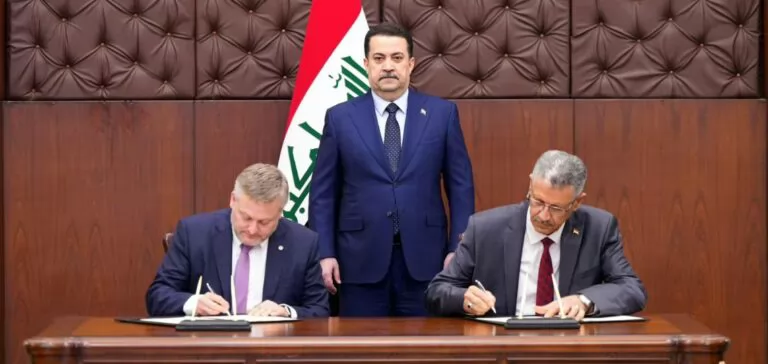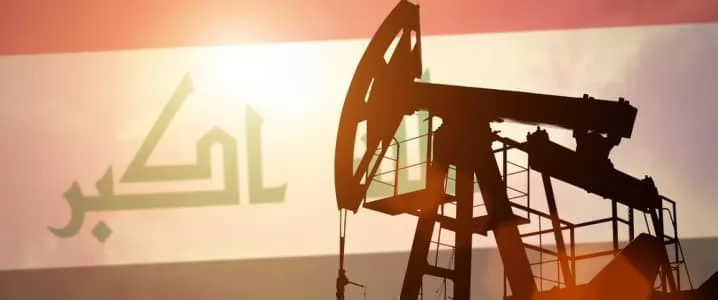

Iraq and BP have reached a significant agreement to develop multiple oil fields in Kirkuk province, aiming to boost production capacity and modernize the region’s energy infrastructure. This initiative includes increasing petroleum output, refurbishing existing facilities, capturing and utilizing natural gas traditionally flared during oil extraction, and exploring additional reserves. The agreement, involving Iraq’s state-owned North Oil Company and BP, focuses on four key fields: Bai Hassan, Kirkuk, Jambur, and Khabbaz. A 400-megawatt power plant is also planned as part of the broader development strategy.

BP’s initial phase targets extracting over three billion barrels of oil equivalent, with its compensation structured around production increases, market prices, and operational costs. The project is expected to raise production from approximately 350,000 barrels per day (bpd) to nearly 500,000 bpd, reinforcing Iraq’s position as OPEC’s second-largest oil producer. BP, one of the world’s leading energy companies, has extensive experience in large-scale oil field operations, including its ongoing work in Iraq’s Rumaila oil field, one of the world’s most productive fields.
Iraq’s push for increased oil and gas production aligns with its strategy to reduce reliance on imported natural gas, particularly from Iran. Despite holding the world’s second-largest proven natural gas reserves in the Middle East, Iraq continues to import gas and electricity from Iran to meet domestic energy demand. However, with growing international pressure and sanctions affecting Iran’s oil and gas exports, Iraq aims to become more self-sufficient by reducing gas flaring and expanding domestic production. Iran, meanwhile, remains a key regional energy player, exporting crude oil to China, Syria, and other markets while navigating U.S. sanctions that restrict access to Western markets.

This agreement underscores BP’s long-term commitment to Iraq’s energy sector while helping Baghdad strengthen its position in the global oil market. By addressing gas flaring and enhancing oil production efficiency, Iraq aims to improve energy security, reduce emissions, and attract foreign investment in its oil and gas infrastructure. Additionally, BP’s expertise in carbon capture and renewable energy could pave the way for further cooperation in low-carbon energy solutions in the region.
As Iraq seeks to modernize its energy sector, this collaboration with BP is expected to bring economic benefits, technological advancements, and a more stable energy supply to the country while reducing its reliance on imports from Iran.
Nanjing Fugo New Material Tech Co., Ltd. (Fugo Tech) is an ISO 9001 and PED 2014/68/EU certified manufacturer specializing in Clad Material (Explosive Clad Plates & Rolled Clad Plate, Clad Bar & Clad Transition Joints) and Titanium, Nickel Alloy, and Stainless Steel products (Pipe/Fitting/Flange/Fastener)which are widely used in the Heat Exchanger,Pressure Vessel,Reactor,Column,Tower, and other process equipment.
Fugo Tech offers a wide range of materials, including Titanium, Nickel Alloy, Copper, Cu-Ni, and stainless steel, along with custom processing services (Tube Sheet drilling, Dish Head forming, and Overlay Welding) for Oil & Gas, Chemical, Petrochemical, Chemical, Energy, Paper & Pulp, Marine, Shipbuilding, Environment, Metallurgy, and New energy vehicles, with a strong focus on high-performance Clad Plate & Titanium & Nickel Alloy & Stainless Steel solutions.
For any new requirement, please contact: sales@fugo-tech.com



Fugo Tech is focused on the manufacturing of clad metal plate and distributes the Stainless Steel, Titanium, Nickel Alloy, Zirconium and other non-ferrous metal pipes, fittings, flanges, and fasteners.